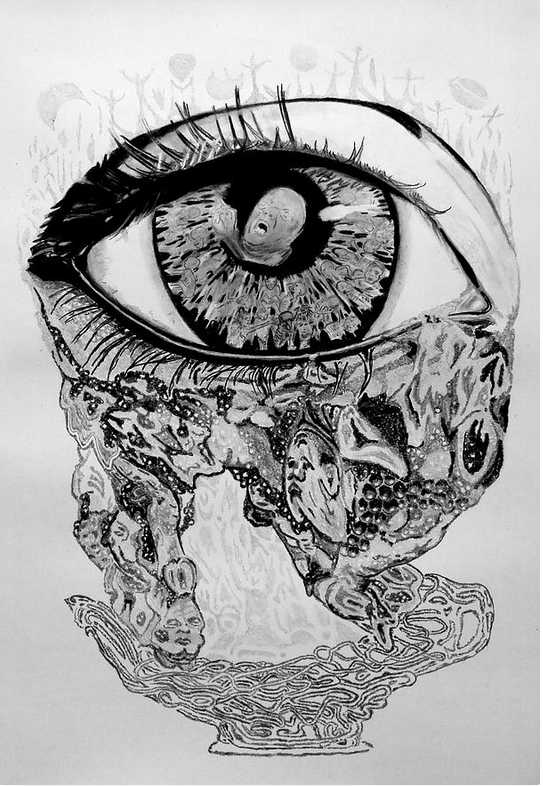FWP:
SETS
DREAMS: {3,3}
EXISTENCE/NONEXISTENCE: {5,3}
EYES {3,1}
GATHERINGS: {6,3}
TAMASHA: {8,1}
For background see S. R. Faruqi's choices. For more on Ghalib's unpublished verses, see the discussion in {4,8x}.
Gyan Chand is right to point to the brilliant {98,10}, a verse that can't help but pop into the head of any Ghalib fan. It's tough competition, but the present verse has its own pleasures. For one thing, it's almost a catalogue of Ghalib's favorite kinds of imagery. For another, there's a kind of primeval dreaminess to it-- the eyes are not 'closed' (as though they had once been opened, then had been caused to close), but rather 'non-opened' (so that perhaps they had never opened at all).
And that 'non-opened' is a piquant effect in its own right. It would take anybody a moment or two to figure it out. It's naa plus kushaadah , 'not' plus 'opened' (in Persian). But to make it fit the meter, two successive operations have been performed: the naa has lost its long vowel, and then the resulting word has had its syllables arranged (not na-ku-shaa-dah but nak-shaa-dah ) so that it can be scanned as long-long-short. This makes the word sound strange and problematical-- which of course is perfect for a kind of primordial dream state. And it postpones the moment of comprehension by imposing that tiny penultimate pause while we do the furious mental work that enhances the effect of so many of Ghalib's verses.

Asi:
Oh Asad, about the state of existence-- don't ask! It is a spectacle. We see it, but with eyes that are still in the dream/sleep of nonexistence. That is, the presence of existence is still in the state of nonexistence, and this 'existence' is entirely 'nonexistence'.
== Asi, p. 267